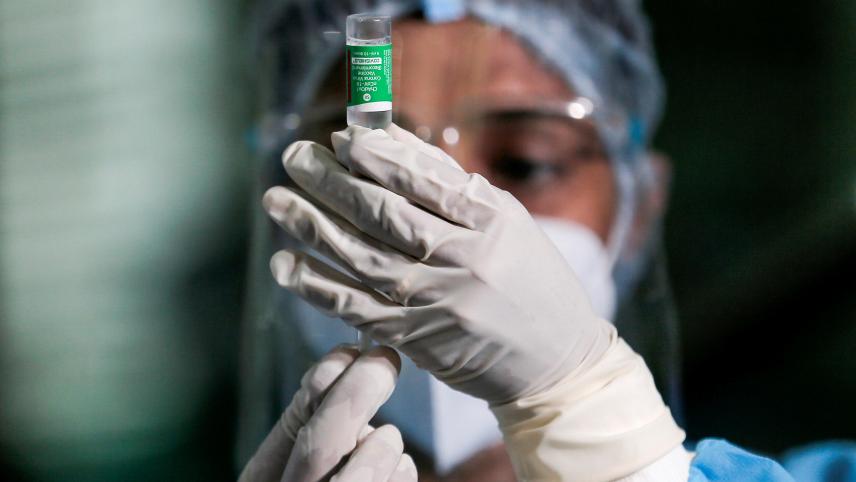The world's largest vaccine manufacturer, the Serum Institute of India, will stop manufacturing its Covid-19 vaccines under the AstraZeneca licence, due to the decline in global demand.
The institute produced more than a billion doses of Covishield: AstraZeneca’s vaccine produced under a different name in India. It also was one of the largest contributors to Covax, the campaign providing the poorest countries with Covid-19 vaccines.
Since last summer, however, production exceeded demand and the company's stockpile grew to 200 million unused doses, according to Serum chief Adar Poonawalla.
"We shut down production in December. I have even offered to give free donations to whoever wants to take it," he told an economic forum organised by Times Network media group, expressing concern over potential waste. The Covishield vaccine can be used for up to nine months after its manufacture date, according to India's drug regulator.
Related News
- 'Breaking the stigma': Belgium now recognises Indian Covishield vaccine
- Covid-19: One-third of world population 'totally unvaccinated'
- South Africa 'cracks code' of Covid vaccine, working on patent-free version
The production halt applies only to Covishield; the company will continue to produce Covovax under licence from the US pharma giant Novavax, a Serum spokesperson confirmed to AFP.
Still, while the world is seemingly moving from a shortage to a "glut" of Covid vaccines, billions of people remain unvaccinated, most in developing nations.
While around two-thirds of the world population has received at least one dose of a Covid-19 vaccine and many European countries – including Belgium – are even considering a fourth dose for certain population groups, only 12.5% of people in low-income countries have received at least one dose. In practice, this means that one-third of the world (including 83% of all Africans) remains totally unvaccinated.
Meanwhile, large pharmaceutical companies (backed by the EU, the UK, Germany and Switzerland) have refused to waive their patents and share the vaccine recipe and know-how that would make it possible for other manufacturers to start producing them.
A People's Vaccine
After two years of the pandemic, a number of initiatives have been urging world leaders "to do what is necessary to end this crisis" and unite behind a People’s Vaccine, based on the principles of equity and solidarity: accessible to everyone, everywhere, and free from patents and profiteering.
Signatories of the People's Vaccine include The Duke and Duchess of Sussex Prince Harry and Meghan, former Secretary-General of the United Nations Ban Ki-Moon and famous actress Charlize Theron, who is a UN Messenger of Peace and the founder of her Africa Outreach Project.
In a press release issued on the two-year anniversary of the start of the pandemic in March, they stress that the failure to vaccinate the world so far is down to "self-defeating nationalism, pharmaceutical monopolies and inequality," which have led to the "avoidable" milestones of two years and an estimated 20 million deaths from Covid-19.
The World Health Organisation (WHO), too, has repeatedly warned that unequal access to vaccines increases the risk of new, possibly even more infectious or severe virus variants emerging in unvaccinated populations.
By this summer, the WHO wants 70% of the population in every country to be fully vaccinated – the threshold considered essential to control the pandemic. But it also warned that, at the current rate, it may take until August 2024 for most countries in Africa to reach that goal.

